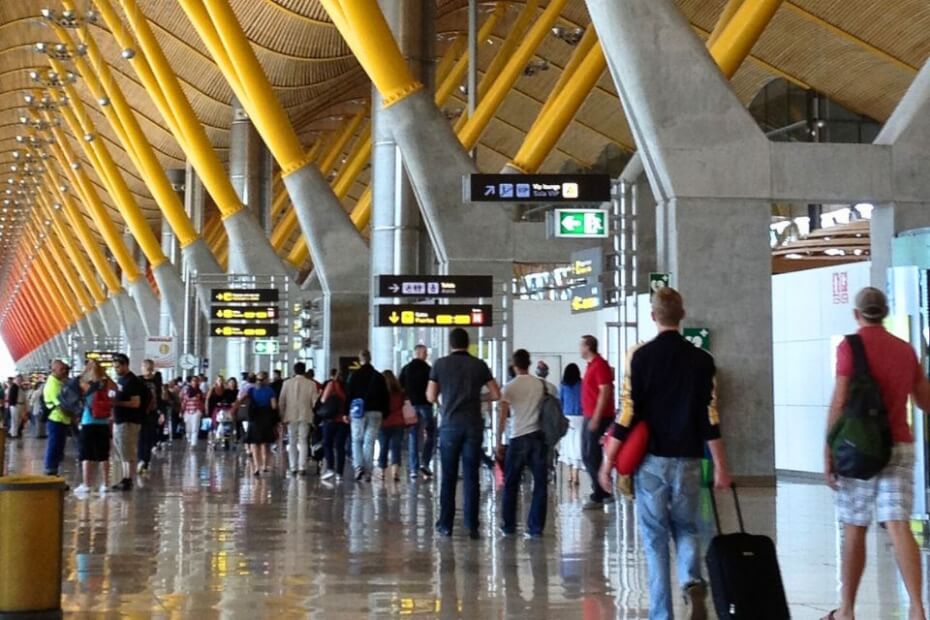
Spain issued a travel advisory for British citizens and other non-EU passport holders, stating they must have proof of accommodation or a place to stay.
This could be a booking confirmation for a hotel or Airbnb, proof of address if visiting their own property or their second home in Spain, or proof of address if staying with friends, family, or another third party.
Additionally, visitors must present a “carta de invitación” or an invitation letter if staying with friends, family, or other third parties.
Non-EU visitors to Spain must show proof of accommodation apart from other entry requirements, such as a valid passport, visa (if applicable), return ticket, and proof of sufficient financial resources.
This rule was introduced on 1 January 2022, but many tourists, especially those from the UK, often neglect it.
According to a report by the Daily Express, those who cannot present these two legal documents may be fined as much as £8,000 or sent home.
What is a carta de invitación?
Non-EU citizens visiting Spain must obtain a carta de invitación if they have not booked commercial accommodation such as a hotel or Airbnb.
A carta de invitación is an official document a person legally residing in Spain must request at the closest police office to host a non-EU national.
Non-EU citizens visiting Spain must typically submit this document as part of their visa application process.
It demonstrates the purpose and duration of the travelers’ visit, proof of accommodation, and financial support.
British travelers may often overlook this since they do not need a visa to enter Spain.
For visitors who do not need a short-stay visa, Spanish officials may still ask them to present it at the border.
A carta de invitacion is valid for 90 days, the maximum amount of time non-EU citizens can spend in the Schengen Area.
Applying for a carta de invitación
It must be noted that travelers to Spain do not request a carta de invitacion – it is the person hosting them when they visit.
Spanish nationals or foreigners legally living in Spain must first set an appointment at a police office.
They can only present the requirements for a carta de invitacion during their appointment. These requirements include the following:
- A rental contract or property deed certifies that a person owns or is renting a property
- Town hall registration document (empadronamiento)
- A copy and original document proving that the host is a legal resident of Spain– Spanish nationals must present Documento Nacional de Identidad (DNI). At the same time, foreign residents in Spain can use Número de identidad de extranjero (NIE) or their EU foreigner identity number or Tarjeta de Identidad de Extranjero (TIE) or non-EU Foreigner’s Identification Card.
- A copy of the passport of the visitor traveling to Spain
- Completed application form
- State application fee of about €80 to €85, part of which must be paid upon submission of documents and the rest when the document is picked up.
A police station typically issues a carta de invitación on the same day, but in some cases, it can take as long as a month.
Once the carta de invitación is ready, the host must pick it up at the police station and send it to the visitor’s country of origin.
Visitors must receive their carta de invitación and bring it with them when they travel to Spain.
Obtaining a carta de invitación and sending it to visitors traveling to Spain can take anywhere from 20 to 60 days.
Other reminders for UK citizens visiting EU states
UK citizens can enter the EU’s Schengen Area without a visa for short stays, but they should ensure their passport meets two conditions.
First, British passports must not be over ten years old on the day of their outbound travel. UK citizens still using red passports may not meet this requirement.
Second, the passport must remain valid for at least three months when they leave the EU or return home. The UK government advises UK travelers’ passports have at least six months before expiration.
In October 2024, the EU will replace stamping passports with the automated Entry/Exit System (EES).
This will affect non-visa travelers, such as British citizens, as well as short-stay visa holders.
The EES uses biometric data, such as fingerprints or facial scans, to record entries and exits at the external borders of the Schengen Area.
By mid-2025, the EU will also launch its European Travel Information and Authorization System (ETIAS) for all non-visa travelers.
The ETIAS works similarly to the UK’s Electronic Travel Authorization (ETA), allowing pre-screening of travelers and a more seamless travel experience.

